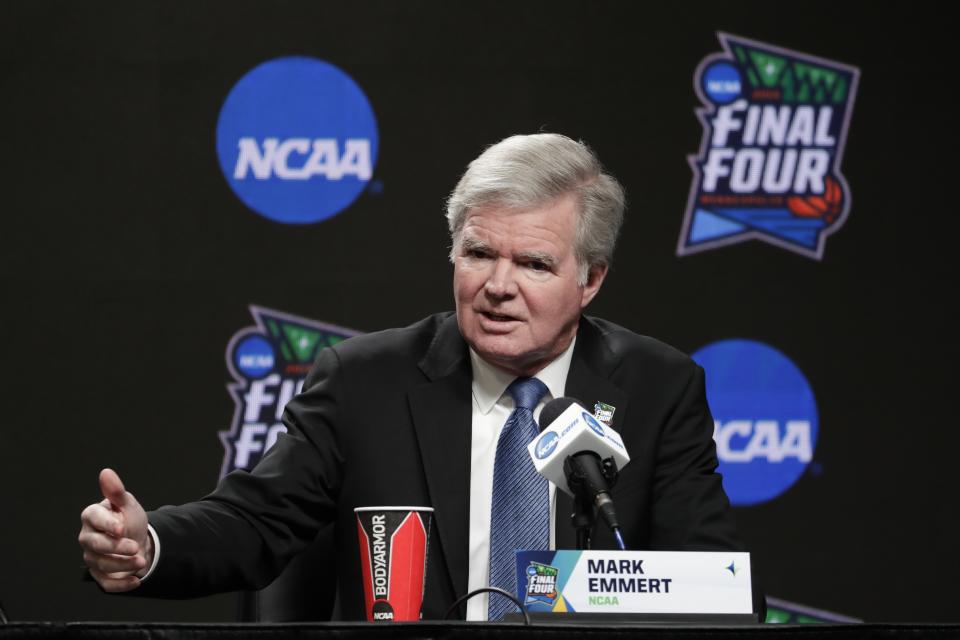Report: NCAA threatening to bar California schools from championships over name, image, likeness bill
The NCAA may have formed a group to discuss student-athletes potentially being compensated for the use of their name, image and likeness, but its current position on the matter remains abundantly clear.
According to USA Today, the NCAA beefed up its opposition to a bill that passed through California’s state Senate that would allow student-athletes in the state to be paid for the use of their name, image and likeness beginning in 2023.
In the NCAA’s latest effort to halt that bill from proceeding, NCAA president Mark Emmert sent a letter to state lawmakers last week asking two state committees to delay consideration for the bill while NCAA bigwigs discuss the issue.
According to USA Today, Emmert “implied” in the letter that if the bill is entered into California state law, universities in the state could potentially be barred from participation in NCAA championships. Emmert also said that the law, as long as current NCAA standards remain in place, would make it “impossible to host fair national championships” in the state.
When the NCAA in May announced the formation of its “working group” on name, image and likeness, it said an initial update on the group’s progress would be provided in August with a final report due to the NCAA Board of Governors in October.
Meanwhile, the bill, which passed through the state Senate by a 31-4 vote in May (about a week before the NCAA’s working group was announced), is scheduled to be the subject of a hearing by one California state committee on Tuesday. And if it moves beyond that point, the bill would advance to the state’s Higher Education Committee.
If the law comes to fruition, Emmert says it will “likely have a negative impact” on student-athletes in the state. Here is a portion of Emmert’s letter, via USA Today:
“We recognize all of the efforts that have been undertaken to develop this bill in the context of complex issues related to the current collegiate model that have been the subject of litigation and much national debate. Nonetheless, when contrasted with current NCAA rules, as drafted the bill threatens to alter materially the principles of intercollegiate athletics and create local differences that would make it impossible to host fair national championships. As a result, it likely would have a negative impact on the exact student-athletes it intends to assist."

According to USA Today, Emmert’s letter prompted a minor amendment to the bill that says the state will “monitor” the work of the NCAA working group and potentially “revisit the issue” should anything “significant” come from the working group’s report. Otherwise, the bill — with the state seemingly ready to call the NCAA’s bluff — is unchanged heading into Tuesday’s hearing.
Mark Walker, a congressman from North Carolina, introduced a similar bill earlier this year. Walker’s bill calls for changing the federal definition of a qualified amateur sports organization, allowing student-athletes to be compensated for their name, image and likeness via a third party.
The NCAA has long used its tax-exempt status and the faux ideal of “amateurism” as a way to defend its rules that prohibit athletes from being compensated in any way, including via the use of their own likeness. The name, image, likeness issue came to the forefront of NCAA debate in 2009 when two former college athletes, including former UCLA basketball player Ed O’Bannon, sued the NCAA for the use of their likeness in video games.
More from Yahoo Sports:

